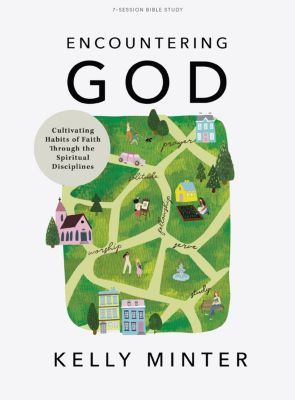I remember right where I was in my house. I was listening to Beth Moore give a message out of Genesis 17 and if I’m not mistaken I was listening to her by tape (as in those small plastic rectangles that used to go in tape recorders). I was in my early twenties and also in the middle of one of those wrestling matches with God that most, if not all, believers have at varying points in their life of following Christ. The details of these bouts with the Lord vary from person to person, but the premise is always the same: Our way versus God’s.
I was desperate to go in a direction that was comfortable for me; it was familiar, and, far more than any other path I knew, felt like life itself. The only trouble was that the path I wanted to go on wasn’t one of obedience, and I knew it. I was angry, conflicted, hurting. With my Bible opened to Genesis 17 I listened to Beth read from the scriptures about God’s promise to Abraham and Sarah, how in their old age they would have a son named Isaac. The text will be familiar to many of you, but maybe you’ve never seen it the way it met me that day.
“Abraham fell facedown; he laughed and said to himself, ‘Will a son be born to a man a hundred years old? Will Sarah bear a child at the age of ninety?’ And Abraham said to God, ‘If only Ishmael might live under your blessing!’” (NIV, emphasis mine.) Other translations say, “be acceptable to you” or “live before you”, but the sentiment is the same. The favor of God and His covenant with Abraham would be confirmed through a child named Isaac born to Sarah, not Ishmael, the child born to Hagar.
At this point in the story Ishmael was the only son Abraham had, knew and loved. There was no Isaac. Because we have the benefit of knowing the rest of the story, we know the miracle of Isaac is coming, we know he’ll be the apple of Abraham’s eye, and we know the role he’ll play as one of the patriarchs of Israel. But in order to understand Abraham’s angst—oh, that Ishmael might live under your blessing!—we can’t read all that information back into this moment.
Setting that knowledge aside you can feel Abraham weighing his existing son Ishmael next to the yet-to-be, impossible son Isaac: Lord, you don’t have to go to all this trouble! I already have a son I love. He’s familiar to me. I know him. He’s in my home. Just bless him! Take your hand of blessing that’s on this idea of Sarah and I having a son in our old age, and simply shift it over to the path I’m already good with, the one I’ve created, the one I know. See how easy that is?
And there it was…I wanted God to bless my path instead of yielding myself to the one He’d already blessed. I wanted Him to bless what I knew, not bless what I didn’t. I didn’t want to hear Him tell me “no” like he told Abraham, even though His staying words would eventually lead me to His gracious “yes”. But that day I knew I’d heard God’s voice. He was inviting me—and I do mean it was an invitation—to step out in faith, follow Him into unfamiliar places, and obey Him in ways that would require sacrifice.
Since then I’ve experienced unparalleled joys as well as sadness—this is how obedience looks for all of us. But for all the world I wouldn’t change the decision I made that day to walk where His hand of blessing unmistakably rest. It’s a choice we make over and over, and it’s the difference between the natural and the supernatural. Abraham learned what I pray we all will: Nothing we’re holding onto with human hands will ever compare to what God will place in our empty ones. We must simply trust Him.


